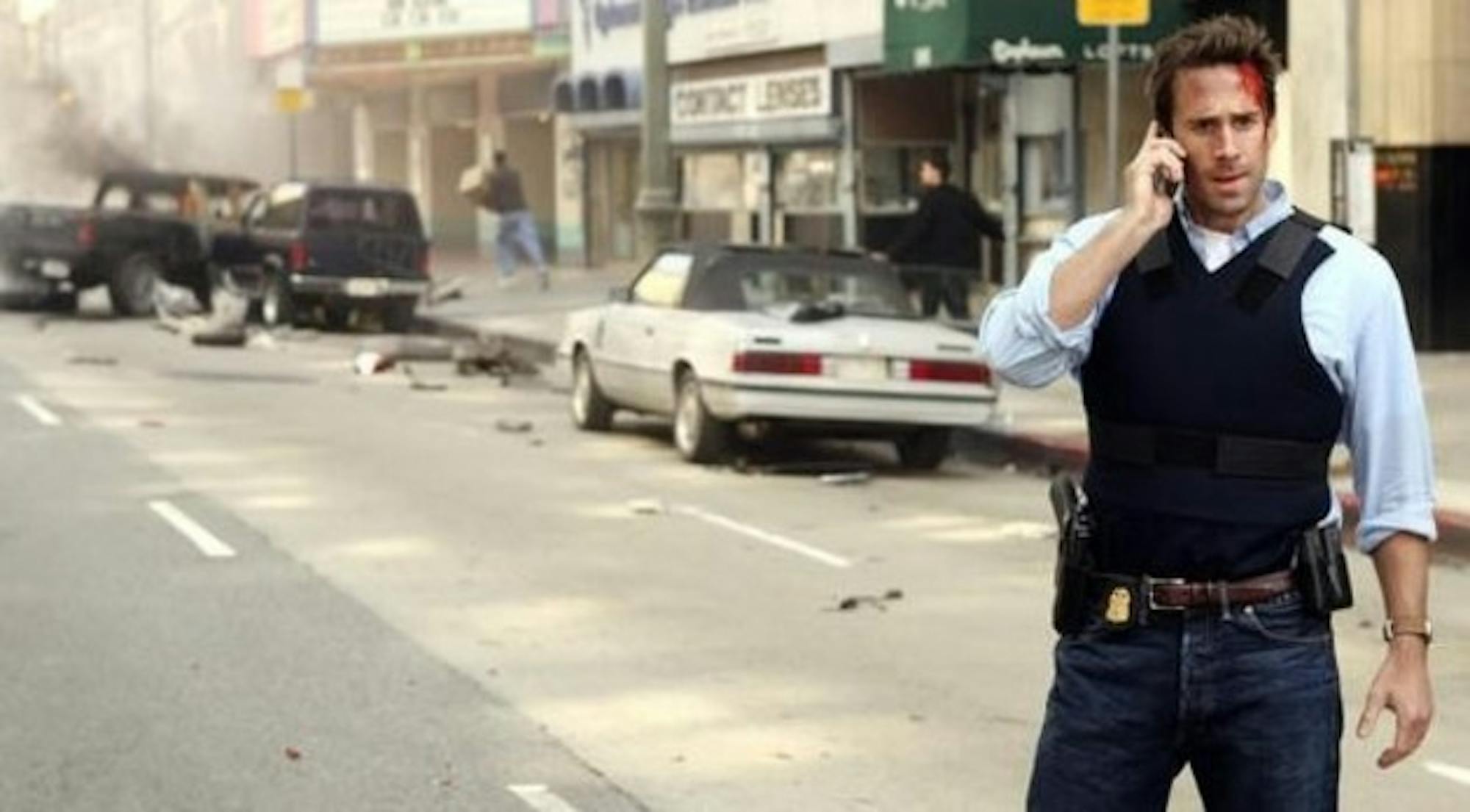Going through "Lost" withdrawal during this eight-month hiatus? Devastated that your favorite desert-island mystery won't be returning to the airwaves after its series finale this May? Fear not, because ABC is confident that it has a solution for you. Since first airing five promo spots of its newest sci-fi mindbender "FlashForward" during an April 2009 episode of "Lost," ABC has been aggressively targeting the show's fans with endless reminders that "FlashForward" might be the heir to the throne of indulgently confusing network thrillers.
This seems logical enough on paper, the premise of "FlashForward" (airing Thursdays at 8 p.m.) really does sound like "Lost 2.0." According to the show's premise, on Oct. 6, 2009, the entire planet lost consciousness for 137 seconds, during which time most people experienced a vision of what they would be doing on April 29, 2010. The mass loss of consciousness caused tens of millions of deaths and widespread panic.
In the devastating aftermath of the event, Los Angeles-based FBI agent Mark Benford (Joseph Fiennes) hatches a plan that, he hopes, will help solve the mystery of what caused the blackout. With the help of his partners at the bureau, he launches a web site called "Mosaic" that asks citizens of the world to post answers to the popular post-blackout question: "What did you see?"
Answers to the question range from the mundane sitting on a toilet reading the sports section to the inexplicable, as one character experiences a vision of his reunion with the daughter whose remains he thought he buried years ago. Using the database, Mark and company gain access to clues that should help in their investigation.
The catch? Mark was motivated to set up this web site and begin the ensuing investigation only because he saw himself working on it in his vision. Each clue that he finds to explain the blackout every cryptic Post-it and creepy photograph is a clue that he already saw on the investigation board in his flash-forward. The audience can only wonder whether Mark saw his flash-forward because he was destined to spearhead the investigation, or whether Mark chose to spearhead the investigation only after seeing his flash-forward.
Mark's motivation for understanding the blackout is more personalthan most of his co-workers know. A recovered alcoholic, Mark saw himself taking shots from a flask as he worked on the puzzle. And his wife Olivia, played by Sonya Walger, saw herself with another man.
Thus, just like in "Lost," questions of free will versus determinism abound against a pseudo-scientific backdrop of time travel, with plenty of inter-character drama thrown in for spice. And, like its supposed predecessor, "FlashForward" seems to delight in the opportunity to confuse its audience.
Not to worry, though, just like J.J. Abrams, "FlashForward" showrunners David S. Goyer and Brannon Braga promise audiences that they know exactly where the show is going, down to the last shot of the last episode.
And the similarities don't stop there. In its first five episodes, "FlashForward" has, both intentionally and unintentionally, paid homage to countless "Lost" mainstays. There's the unexplained and out-of-place kangaroo that hops past Mark in the pilot (polar bears, anyone?). Not to mention that two "Lost" alums, Walger and Dominic Monaghan, have lead roles on the new series.
But some of these winking nods, like the Oceanic Airlines billboard in the background of one pre-blackout shot, are overkill. In the end, ABC's attempts at forcing the notion of a "Lost" companion down the throats of viewers are really quite off-putting. After all, how can you compare a show in its infancy to the mini-empire that "Lost" has become in its five overwhelmingly successful seasons?
The answer that ABC has failed to see is that you can't. To tote any show as the new "Lost" is to set viewers up for disappointment. Indeed, after premiering at No. 1 in the Nielsen ratings in the competitive 8 p.m. Thursday time slot (beating out even "Survivor: Samoa"), "FlashForward" slowly lost a significant portion of its viewers over the following three weeks (though the fourth week brought a very slight increase).
And, while most critics have given "FlashForward" a positive reception, few have refrained from mentioning that other sci-fi show. The question of whether this will be an adequate replacement threatens to overshadow the otherwise complimentary reviews. The endless "Lost" echoes have already detracted from much of the new show's individual brilliance.
So please, ABC, get rid of the Oceanic billboards, nix the kangaroos, stop name-dropping "Lost" in the promotional materials. And for God's sake, don't shove "FlashForward" into the former "Lost" time slot once it goes off the air in May.
While the "Lost" hype may have been a strategic way to draw attention to this newcomer, it is time to let one of this season's most promising new shows develop an identity of its own.




